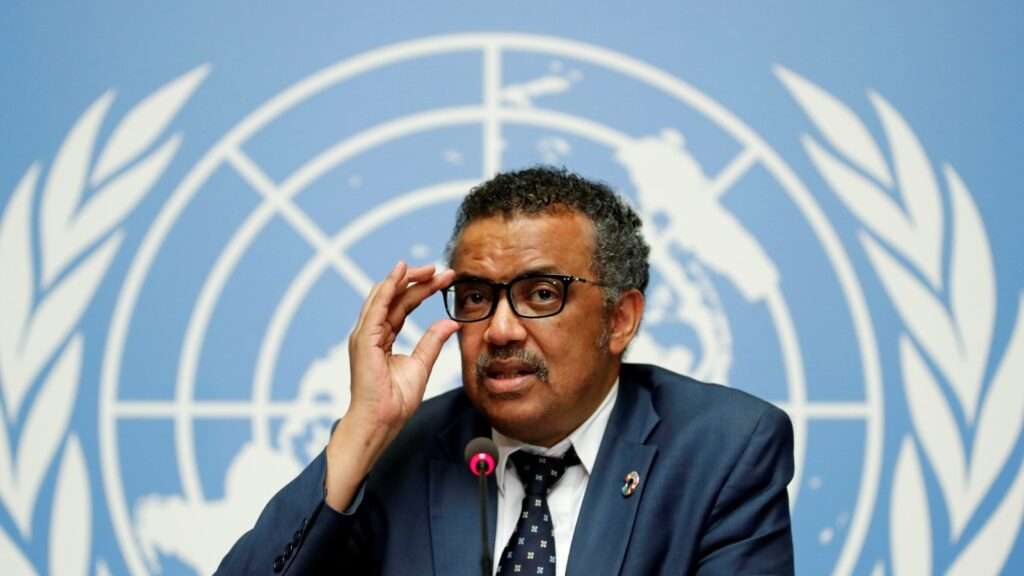The leaders of the United Nations Children’s Fund (UNICEF) and the World Health Organization (WHO) have urged for enhanced support for breastfeeding to reduce health disparities and ensure the well-being of mothers and infants.
This appeal coincides with the launch of World Breastfeeding Week, observed every year from August 1-7.
UNICEF Executive Director Catherine Russell and WHO Director-General Tedros Adhanom Ghebreyesus emphasized the broad benefits of breastfeeding in their joint statement.
“When mothers receive the support they need to breastfeed their babies, everyone benefits. Improving breastfeeding rates could save over 820,000 children’s lives each year, according to the latest available data.”
Joint statement
Breastmilk, which contains vital antibodies, is essential in protecting babies from illness and death, particularly in emergencies where it serves as a safe and nutritious food source.
For mothers, breastfeeding lowers the risk of certain cancers and non-communicable diseases, in addition to reducing childhood illnesses.
Despite the significant progress made over the past decade, with exclusive breastfeeding rates for infants under six months rising by more than 10 percent globally, challenges persist.
Currently, 48 percent of infants worldwide benefit from exclusive breastfeeding, nearing the WHO’s 2025 target of 50 percent. However, much work remains.
Russell and Ghebreyesus highlighted that more than half of the world’s population — approximately 4.5 billion people — lack full access to essential health services.
This gap means many women do not receive the necessary support to breastfeed optimally, which includes “trained, empathetic and respectful health advice” and counseling.
The leaders stressed the importance of reliable data collection to address healthcare inequalities and ensure timely and effective breastfeeding support.
Currently, only half of all countries gather data on breastfeeding rates, a gap that must be bridged.
Moreover, information on policies that facilitate breastfeeding, such as family-friendly employment policies and regulations on breastmilk substitutes, needs to be readily available.
“When breastfeeding is protected and supported, women are more than twice as likely to breastfeed their infants, and this is a shared responsibility,” they asserted.
Families, communities, healthcare workers, policymakers, and other stakeholders must all contribute by increasing investments in programs and policies that support breastfeeding, backed by dedicated national budgets.
Further recommendations include implementing and monitoring family-friendly workplace policies such as paid maternity leave, breastfeeding breaks, and access to affordable and high-quality childcare.
The leaders also called for targeted support for mothers in emergencies and under-represented communities, ensuring breastfeeding protection as part of routine health coverage.

Global Efforts to Promote and Support Breastfeeding
Across the globe, various countries are implementing measures to promote and support breastfeeding. In Canada, the government introduced the “Canada Food Guide” which encourages breastfeeding as the best choice for infant feeding.
They also provide the “Canada Child Benefit” to help families cover the costs of raising children, which can be used for breastfeeding support.
In the UK, the National Health Service (NHS) provides free breastfeeding support groups and a dedicated helpline.
The NHS “Healthy Start” scheme also offers vouchers for healthy foods, including infant formula, to low-income families, encouraging them to choose breastfeeding when possible.
In Africa, Kenya has made significant strides in promoting breastfeeding through the “Beyond Zero” campaign, which aims to reduce maternal and child mortality by promoting exclusive breastfeeding for the first six months.
The campaign has resulted in an increase in exclusive breastfeeding rates from 13% in 2013 to 61% in 2019.
In the Philippines, the “Milk Code” regulates the marketing of breastmilk substitutes, ensuring that mothers are not unduly influenced to stop breastfeeding.
The government also provides maternity leave benefits, encouraging mothers to breastfeed their infants.
As such, as World Breastfeeding Week progresses, the call for unified action and increased investment in breastfeeding support remains paramount.
READ ALSO: Kweku Flick ‘Exposes’ Ladies in His DM
















